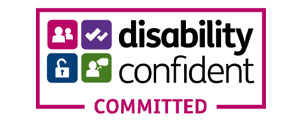Embracing transparency
Earlier this year we held a client round table event under Chatham House Rule to discuss the topic: ‘If transparency builds trust, what’s stopping us from embracing it?’ 15 charity CEOs and Industry leaders joined us. Thanks to 11 London and Trust Impact for partnering on this event and Kate Lee, CEO of Clic Sargent for giving such an insightful and honest appraisal of how transparency around impact reporting has created positive change both internally and externally at Clic.
In an age of misinformation, trust and transparency hold powerful currency. But in the non-profit sector, the fear of speaking honestly about failures is still holding many leaders back. Are they right to be afraid, or should they take the plunge and issue a ‘warts and all’ impact report?
Last week, 11 London teamed up with non-profit experts Starfish and Trust Impact to hold a breakfast event with 15 charity CEOs and industry leaders, hosted by broadcaster Liz Barclay, where we discussed how speaking honestly about failure can build trust. Here are 11 key insights from our debate about why it’s good to be transparent – and how to go about it:
WHY:
#1: Being honest about your failures means people believe your success stories: one charity that saw an uplift in major donations was told: ‘Because of the honesty, I believed everything else’.
#2: Transparency also builds engagement: your donors and beneficiaries will feel included in your challenges (as they should), rather than sold to.
#3: Honesty can win awards as well as hearts – as Clic Sargent’s ‘Hands up, we’re not perfect’ annual review proved.
#4: The cultural pressure that ‘this must work’ can freeze things up. Conversely: ‘Transparency has improved our internal culture. Because people have permission to fail, they’re trialling stuff.’
#5: Integrity is important to a new generation of job candidates – a transparent organisation attracts a bigger, better pool to recruit from.
HOW:
#6: You can’t start being open with the outside world if your own team don’t feel they can admit their failures. So grow a culture of transparency within your organisation first.
#7: Build psychological safety in your team. By giving people permission to fail, and ensuring that ‘failure’ isn’t seen as personal, you also empower them to learn.
#8: Your donors and beneficiaries are part of your team, so talk to them as though they are – you could even ask service users to write your review!
#9: Honesty provides a real opportunity to educate people about how complicated your work is – so don’t be afraid to be complex with some audiences.
#10: Thank your team members personally for being honest – one CEO recommends a handwritten letter.
AND FINALLY…
#11: If you’ve already aired your dirty laundry, no one else can wave it around. One CEO was told by a journalist: ‘I couldn’t find anything out you hadn’t already said.’

Expert Interim Talent: How to Launch Your Portfolio Career
Today's business landscape demands agility and specialised expertise. Discover how to leverage your skills across diverse, high-impact projects, gaining unprecedented flexibility and autonomy. Forget "holding the fort", modern interims are strategic leaders, driving change and delivering results in times of transformation.
Recruiting leaders in perilous times
Leadership appointments have always carried weight, but in the current climate they carry a different kind of exposure. For those of us working at the interface between Boards and candidates, it is clear that the rules of engagement have shifted, and that executive search must shift with them.
In praise of Gen Z
I surveyed my multi-generational team on what they wanted from work. Here's what I learned.
ACCREDITATIONS


ESPO is a public sector owned professional buying organisation (PBO), specialising in providing a wide range of goods and services to the public sector for over 40 years. Starfish Search has been awarded a place on ESPO’s Strategic HR Services framework (3S). Services we offer under the framework include: Lot 1, Executive and Managerial Interim Recruitment Lot 2, Executive and Managerial Permanent Recruitment.


Starfish are proud to be certified Disability Confident Committed. This scheme provides employers with the knowledge, skills and confidence needed to attract, recruit, retain and develop disabled people in the workplace.


Crown Commercial Service supports the public sector to achieve maximum commercial value when procuring common goods and services. In 2020/21, CCS helped the public sector to achieve commercial benefits equal to £2.04bn - supporting world-class public services that offer best value for taxpayers. Starfish Search has been named as a supplier on Crown Commercial Service’s Executive and Non-Executive recruitment. Services we offer under the framework include: Lot 3 - Non-Executive and Public Appointments.


Bloom, launched in 2012 is the UK’s leading marketplace for professional services. They provide an end-to-end solution for the procurement, contract management and payment of all professional services, via the compliant NEPRO³ framework. Their public sector clients have access to 20 professional services categories and over 4500 accredited suppliers. Bloom provides swift routes to market via either direct award or mini competition. Starfish is an accredited supplier to BLOOM; our services can be accessed via this framework - Executive and Non-Executive Search and Interim Management.
Join the starfish team
We hire people who bring insight, integrity and ambition to their work. If you’re ready to contribute to shaping the future of leadership and you want to explore our current opportunities please click the link below.
find out more